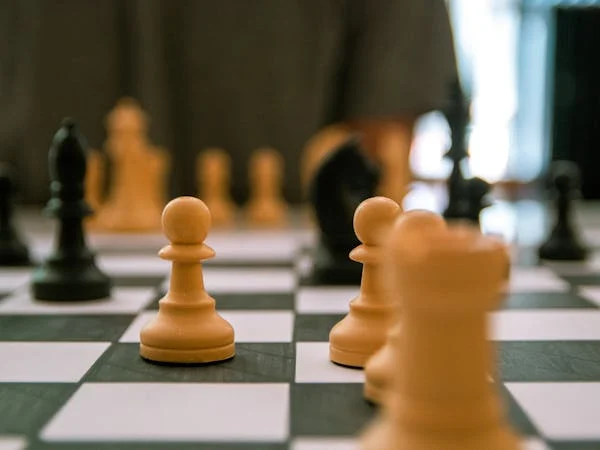So, you’re living in Abu Hamour, Doha, Qatar, and your child is showing interest in chess. That’s wonderful! Chess isn’t just a game—it’s a life tool. It teaches kids how to think ahead, stay calm under pressure, and bounce back after a tough move. But here’s the big question—where should your child learn chess? How do you choose the best chess academy that not only builds skills but also confidence and smart thinking?
Online Chess Training
Landscape of Chess Training in Abu Hamour, Doha, and Why Online Chess Training is the Right Choice
Abu Hamour is a growing, lively part of Doha. It’s filled with families who care about education and giving their kids the best opportunities. Chess is getting more popular here, with many kids joining chess clubs and tournaments.
But when it comes to real training—where your child learns not just how to move the pieces but how to think like a chess master—most parents still have to travel across the city or deal with packed schedules.
Now, let’s stop and think. What if your child could learn chess from home? What if your kid could be taught by a coach who is not just skilled, but trained to teach young minds how to grow and enjoy the game?
That’s where online chess training comes in.
Online chess training is not just about convenience. It’s about structure. It’s about learning from coaches who follow a clear plan. It’s about joining a group of kids from all around the world, sharing ideas, and having fun in a safe space.
Whether your child is just learning how to play or already competing in tournaments, online training gives them something that many offline centers miss—a path.
Many chess classes in Abu Hamour are good. But they’re usually limited by time, space, and sometimes outdated teaching methods. Your child might sit in a room with ten others and not get the help they need. That’s not how champions are made.
Online training, especially with a strong academy, changes that.
How Global School of Chess is The Best Choice When It Comes to Chess Training in Abu Hamour
Now let’s talk about something very important—why Global School of Chess is the best place for your child to grow in chess, especially if you live in Abu Hamour.
We’re not just another online class. We are a full academy. We have a clear curriculum. Every student, no matter their age or level, gets a learning plan that fits them.
Our coaches are not just chess experts. They are FIDE-certified, which means they are trained and tested professionals. More importantly, they know how to talk to kids, how to make lessons fun, and how to keep every student involved.
Classes are live and interactive. That means your child can ask questions, play games with other students, and get direct feedback. We also offer private coaching for students who want to go even deeper.
Every two weeks, we host online tournaments. These are fun, friendly, and competitive. Students from over nine countries take part. It’s not just a game—it’s a global event.
And here’s something parents love: we focus on more than chess.
We help your child learn focus. We help them stay calm when they lose and learn from mistakes. We teach them how to plan ahead. These are life skills, not just chess skills. And they stay with your child long after the game is over.
We’ve helped students win school tournaments, national titles, and even international events. But more than that, we’ve helped kids fall in love with learning, thinking, and growing.
No long drives. No missed classes because of traffic. Just learning, growing, and winning—right from your home in Abu Hamour.
Offline Chess Training
Offline chess training has been around for many years. It’s what most parents are used to. You take your child to a local chess club or academy, they sit with a group of other kids, and they learn from a coach who’s right there in front of them. It sounds good on paper—and yes, it has its moments.
The child gets to meet others, play in person, and sometimes even make friends who also love chess.
In Abu Hamour and nearby areas of Doha, you can find a few chess clubs or training centers. They usually offer group classes on weekends or after school. Sometimes, they even have a coach who has played in tournaments before. For many families, this feels like a safe choice. It’s familiar.
But let’s think deeper.
What happens when the coach is absent? What if your child misses a class? What if the group is too big and your child doesn’t get personal help? What if the classes don’t follow a clear plan or jump around based on who attends that day?
In most offline academies, there’s no set curriculum. Lessons are often based on the coach’s mood or whatever game they want to show that day. There might not be progress tracking. And there’s rarely a system to help your child improve step by step.
Also, think about travel. Abu Hamour is a busy area. Traffic is no joke. Parents often rush from work to get kids to class. The child is tired. The parent is stressed. The learning suffers.
This is why, even though offline training sounds good, it doesn’t always work the way families hope.
Drawbacks of Offline Chess Training
At first glance, offline chess training feels like a traditional, trusted choice. After all, it’s how many of today’s top players got their start. But times have changed.
And what once worked well now comes with a set of hidden costs and limitations—especially when we talk about long-term growth and modern expectations. Here’s a deeper look at some of the most overlooked problems, with strategic advice on how to avoid them.
Lack of Personalization Limits True Growth
Most offline chess academies group students by age or availability—not by skill. That means your child could be playing with kids far above or below their level. In both cases, it holds them back.
Strategic Fix: Always ask offline centers about skill-based grouping and whether they adjust their lesson plans per student. If they can’t clearly explain how progress is tracked or how classes are tailored, consider that a red flag. True learning demands customization.
Coaches Are Often Overstretched
Offline trainers usually handle large groups and have limited prep time. With so many students and no digital tools to track growth, feedback often becomes vague and generalized—”you played well” or “watch your queen.” That doesn’t help a child improve.
Strategic Fix: Before enrolling, observe a class if possible. Look at how many minutes each student actually gets to speak, ask, or receive one-on-one input. If it’s less than five minutes per session, you’re paying for exposure, not expertise.
Physical Fatigue and Environmental Distractions
Offline sessions are often scheduled at the end of long school days or on busy weekends. Children come in tired, and the learning environment—noisy classrooms, shared halls, or clubs—can be full of distractions. All this impacts how much they absorb.
Strategic Fix: Prioritize comfort and timing. If you choose an offline class, aim for shorter sessions or weekends. Also, talk to the academy about the setup—lighting, seating, noise control. Better still, explore online options where the environment can be controlled and calm.
Limited Documentation and Review Tools
When a child finishes an offline lesson, the learning often stays in the room. There are no recordings, no shared notes, no replays of key lessons. If your child didn’t understand a point the first time, there’s no going back.
Strategic Fix: Ask if the academy offers any post-class notes, game analysis, or even follow-up materials. Ideally, students should be able to review games, revisit strategies, and reflect. If not, it may be time to shift to a system that offers better continuity.
No Scalable System for Competitive Growth
Let’s say your child begins to excel—what’s next? Most offline academies don’t have a pipeline that moves students from beginner to advanced systematically. They may prepare for a few local tournaments, but there’s no guided path toward higher levels like FIDE rating, online blitz leagues, or international exposure.
Strategic Fix: Don’t just look at where your child will start—look at where they can go. Ask: What happens if my child outgrows the class? What’s the path to tournament play? If that question leaves the staff scrambling for answers, it’s not the right academy.
Low Parent Involvement and Feedback Loops
In offline training, parents often stay out of the loop. You drop your child off, pick them up, and you’re told they “did okay.” There’s little chance to know what was taught, what was missed, or how your child is improving. That disconnect can be frustrating and leaves little room for strategic support at home.

Strategic Fix: Choose academies that involve parents. Ask how you’ll be updated. A five-minute monthly review isn’t enough. Weekly progress reports, access to class summaries, or parent-teacher calls should be the standard—not the exception.
Risk of Burnout Without Variety
Offline training rarely includes interactive digital tools, puzzles, video-based content, or global sparring opportunities. Kids learn from a board and maybe a few handouts. This lack of variety can lead to boredom, even in motivated learners.
Strategic Fix: Mix it up. If you must go the offline route, combine it with fun digital platforms at home. Better yet, look for academies like Global School of Chess that offer blended models—live interaction, tournaments, games, and lessons all built into one seamless plan.
Best Chess Academies in Abu Hamour, Doha, Qatar
Choosing a chess academy isn’t just about finding a nearby club. It’s about choosing the right place where your child can grow—not just in chess, but in focus, smart thinking, and patience. Let’s walk through the best options available to families in Abu Hamour. While there are some decent academies around, one name truly stands out in every possible way—Global School of Chess.
Let’s begin with the leader in online chess training.
Global School of Chess
This is not just a chess class. This is a complete online academy that turns young minds into confident, thoughtful chess players—and thinkers.
At Global School of Chess, your child gets much more than just lessons. They get a system that works.
From day one, we create a plan that fits your child’s age and skill level. Whether your child is five years old and learning how the knight moves, or a teen preparing for FIDE-rated tournaments, we’ve got it covered. Every student gets a personal learning roadmap. It’s not just about playing more games—it’s about learning smarter, step by step.
Live Classes that Feel Personal
All our classes are taught live by FIDE-certified coaches. These are not just good chess players—they’re great teachers. They know how to explain tough ideas in fun, easy ways. And because the classes are live and small, every student gets to speak, play, and ask questions. No one is left behind.
Private Coaching for Deeper Learning
For students who want to go faster or need extra help, we offer private one-on-one lessons. These are fully personalized. Your child gets the coach’s full attention. And progress becomes faster and clearer.
Fun Bi-Weekly Tournaments
Every two weeks, students join our online tournaments. These are safe, exciting, and full of good lessons. Your child plays with students from across nine countries and four continents. It’s like a mini world championship—right from your home in Abu Hamour.
Confidence and Life Skills
Our goal is not just to teach chess. It’s to grow confident, sharp thinkers. We teach kids how to lose gracefully and learn from it. We show them how to stay calm under pressure. We help them believe in themselves.
And the best part? You don’t have to drive anywhere. Your child can learn, grow, and win—all from your living room.
Our program is trusted by families all over the world. And we’re proud to be helping students from Abu Hamour join that journey too.
You can try a free trial class today at gschess.com/take-a-free-trial-class. No pressure, just pure learning fun.
Now let’s briefly talk about some of the local options.
Qatar Chess Academy
Located in Doha, this academy offers offline training and participates in local events. They’ve got a few good coaches and run weekend classes. But their classes are group-based and don’t always follow a set curriculum. Students may learn useful things, but the pace can be slow and varied.
Unlike Global School of Chess, there’s no online learning, no bi-weekly tournaments, and no personalized growth plan.
Chess Training Center Doha
This center provides a basic introduction to chess for kids in Abu Hamour. It’s friendly and community-based. The training depends heavily on who the coach is at the time, and it lacks structured learning. Students who want to take chess seriously may outgrow this place quickly.
They also don’t offer online classes or access to a global network of players like Global School of Chess does.
Al Rayyan Sports Club – Chess Section
This is more of a sports facility than a training academy. Their chess section is often small and focuses on local competitions. It’s good if your child is already a competitive player and wants to play face-to-face. But there’s no proper curriculum, no progress tracking, and coaching is not consistent.
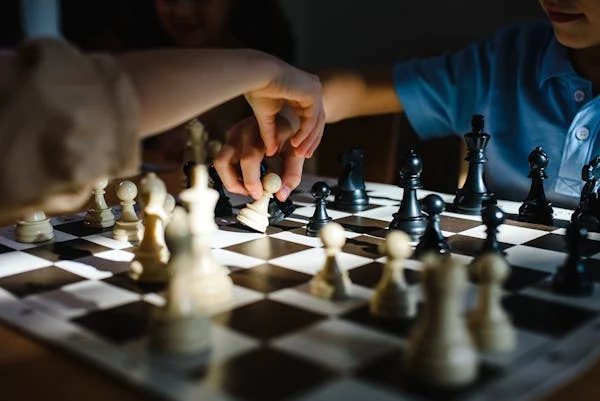
Again, it can’t match the personalized attention and coaching system at Global School of Chess.
Doha Youth Chess Club
This club is for young players and organizes occasional chess meetups. It’s more of a social setup. Kids can play games and interact with others, but training is light. If your child wants structured improvement, this isn’t the best fit.
For serious growth, one-on-one coaching, and deep learning, it falls short of what Global School of Chess offers.
Why Online Chess Training is The Future
Let’s be honest—almost everything in life is shifting online. From schools to shopping, the digital world has made life easier, faster, and better. So why should chess be any different?
Online chess training is not just a trend. It’s a smarter, more effective way to learn and grow in the game. And here’s why it’s not just the future—it’s the right now.
It’s Easy and Flexible
Your child can learn from anywhere—home, grandma’s place, even on vacation. All you need is a laptop or tablet and a quiet space. No more driving through busy Abu Hamour traffic. No more worrying about being late. It fits into your life, not the other way around.
World-Class Coaches, Not Just Local Options
Offline academies only offer local coaches. But with online training, your child gets access to FIDE-certified, world-class trainers. These are experts who’ve coached champions and know how to teach in a fun, clear way. Global School of Chess makes these amazing teachers available to students everywhere—even in Abu Hamour.
Clear Curriculum and Progress
Every class builds on the last. Your child moves through levels with purpose. You can actually see how they are improving. Most offline centers can’t show you that kind of progress.
At Global School of Chess, we track every student’s journey. Parents get updates. Kids get certificates. It’s clear. It’s motivating.
Practice With Students Around the World
Your child doesn’t just learn in a box. They play with and learn from students across the world. It opens up their thinking. They learn about different styles, different strategies. And it’s more fun, too!
Focused and Distraction-Free
Surprisingly, online learning helps kids focus better. There’s no classroom noise. No playground talk. Just the coach, the lesson, and your child. That leads to deeper thinking and better results.
Safe and Comfortable
For young children, feeling safe matters a lot. Learning from home means they’re already in their comfort zone. They open up more, ask more questions, and feel more confident.
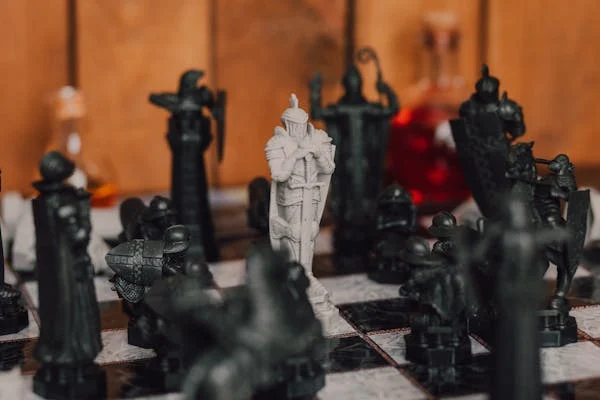
Builds Life Skills
With online chess training, especially at Global School of Chess, we don’t just teach the game. We help your child develop focus, patience, resilience, and smart decision-making. These are skills that matter in every part of life—not just on the board.
Offline academies often miss this. They teach moves. We teach minds.
How Global School of Chess Leads the Online Chess Training Landscape
Let’s bring it all together.
When we talk about online chess training, we’re talking about the future. But when we talk about Global School of Chess, we’re talking about the leader of that future.
We’re not just running a few online classes. We’ve built a full academy—a place where students from all over the world come to learn, grow, and fall in love with the game. And here’s how we lead the way.
We Follow a Clear and Proven Curriculum
Our students don’t just wander through random lessons. From the very first class, we build a custom roadmap. Each student knows what they’re learning next and why. Parents can see progress. Students feel proud. That’s real learning.
We break lessons into levels, from total beginners to advanced tournament players. Each level has lessons, quizzes, practice games, and review sessions. It’s structured, fun, and effective.
We Use the Best Coaches in the World
All our coaches are FIDE-certified and carefully trained to work with kids. They’re not just chess experts—they’re also kind, patient, and great at explaining things.
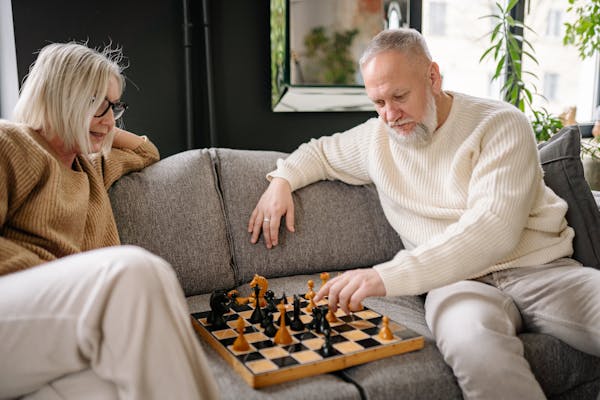
They know how to make shy kids speak up. They know how to help competitive students stay focused. And they know how to make every lesson feel exciting, not boring.
We Offer Personal Coaching and Small Group Classes
Some students do better in private one-on-one sessions. Others love learning with a group of friendly faces. We offer both.
In small group classes, students get to learn, play, and grow with others at their level. In private coaching, the student and coach work deeply on specific goals. Either way, your child gets the attention they need.
We Run Global Online Tournaments Every Two Weeks
Every other weekend, we host an online tournament. It’s fun, friendly, and full of learning. Students play with others from all around the world—from nine different countries and four continents.
This builds confidence. It gives students something to look forward to. And it helps them learn to think under pressure—just like in real competitions.
We Track Every Student’s Progress
After every level, we test understanding. We give feedback. We adjust the learning plan if needed. Parents get reports. Students get certificates. It’s like school, but better.
Offline academies almost never offer this. They teach. Then they move on. But we grow with the student.
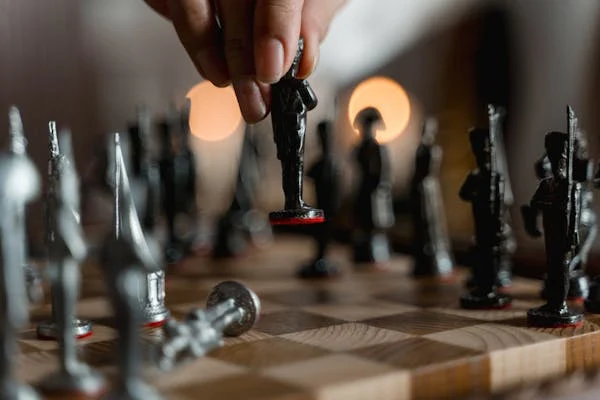
We Build Life Skills, Not Just Chess Skills
This might be the most important part.
Chess is a game. But at Global School of Chess, it’s also a tool. A tool for building smart, strong, confident kids.
We teach focus—because you can’t win if you’re distracted.
We teach patience—because winning takes time.
We teach resilience—because sometimes you lose, and you have to try again.
We teach strategic thinking—because life, like chess, is all about the next move.
And we do it all in a warm, friendly way that kids love.
We’re a Global Family
When your child joins Global School of Chess, they become part of a global community. They meet students from other countries. They learn about new cultures. They make friends. They feel connected.
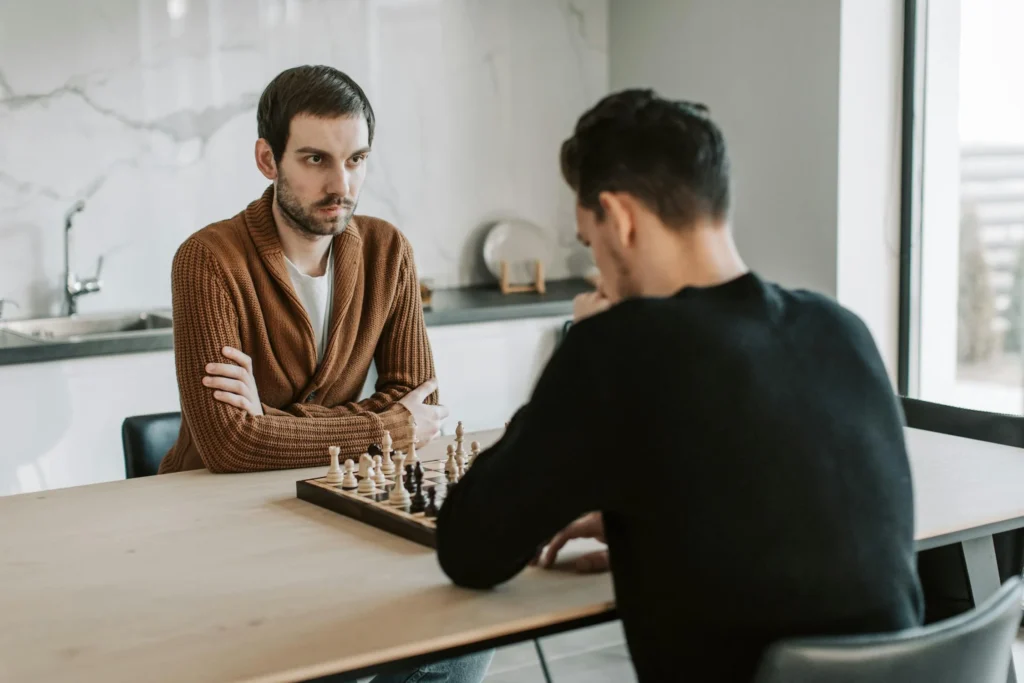
That’s something you can’t put a price on.
Wrapping It Up
If you’ve made it this far, one thing is clear—you care deeply about giving your child the best chess learning experience possible. And that’s exactly the kind of thoughtful, proactive mindset that turns young players into confident, strategic thinkers for life.

